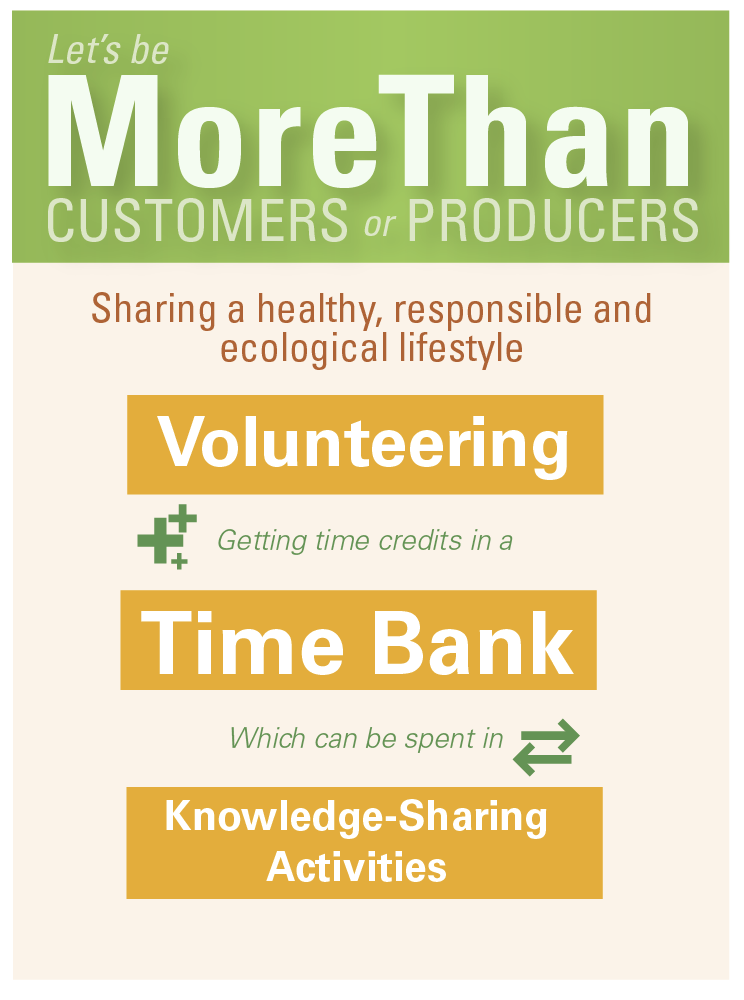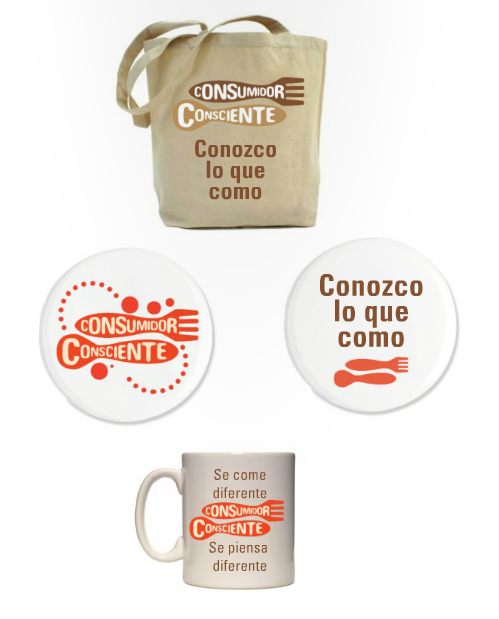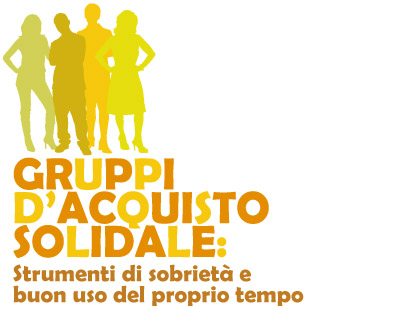More than Customers or Producers
How might we better connect food production and consumption?
Our project led us to two main outcomes:
1. Co-creating with communities:
Concept: More than Customers or Producers
2. Imagining new scales for our previous concept:
Concept: Conscious Product, Conscious Consumer
More than Customers and Producers
After deciding that we wanted to work with communities and networks in the field of Community Supported Agriculture (CSA), we found Colectivo Puentes (Bridges Collective), a group of people that have been running a CSA community in Bogotá since 2009 and have gathered a lot of experience in this field. They help some small organic producers to sale their harvests twice a month to nearly fifty urban customers. Working in nonprofit basis their main objective is to promote local production of small farmers, promote traditional Andean vegetables and fruits and ofering organic food at low prices.
During our observation stage we found that people involved in Colectivo Puentes had similar profiles and common backgrounds. For example, there was a yoga teacher, a photographer, an herbalist, someone skilled in pottery, biologists, many cooking lovers, and even an alternative medicine practitioner.
Then we got this idea: What if instead of just offering organic food, we offer being part of a life-style-sharing community?
This involved a paradigm shift on what they had been doing for two years, which was focused on the responsibility of buying food that supports local producers (promoting the concept of food sovereignty and fair trade), towards a paradigm where enjoining a new way of eating and living, sharing and learning, was more important.
Exchanging knowledge and sharing a lifestyle rather than just giving money for products.
How Might it work? We could create a Time Bank where people accumulate time-credits by doing volunteer work which can then be spent on knowledge-sharing activities such as yoga, cooking sessions, pottery classes or lectures on medicinal herbs.
Volunteer tasks range from working in the market (transporting food, organizing and separating products, cleanning the place after the activity, contacting consumers before each market day, etc.) to recycling or even creating your own activities for other members.
Thus this could enrich the experiences of rural population, since it is not just about bringing the countryside to the people living in the city but also bringing the knowledge and experiences of the city to those who live in the countryside.
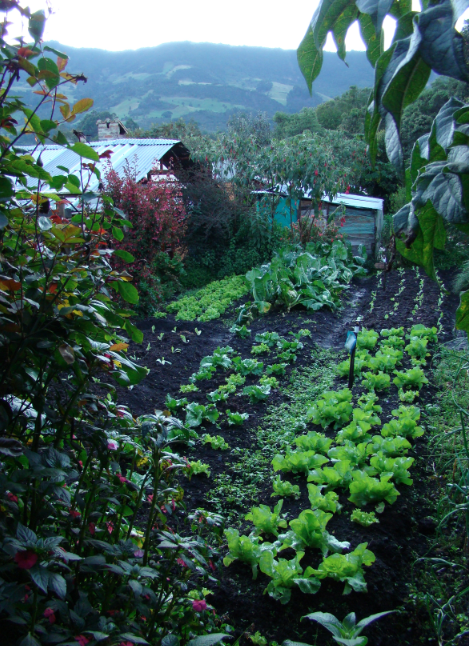
Coletivo Puente's organic farm in Subachoque. A rural district nearby Bogotá. Besides this farm, there are nearly fifteen farmers in the area that contribute with different organic products for the market.
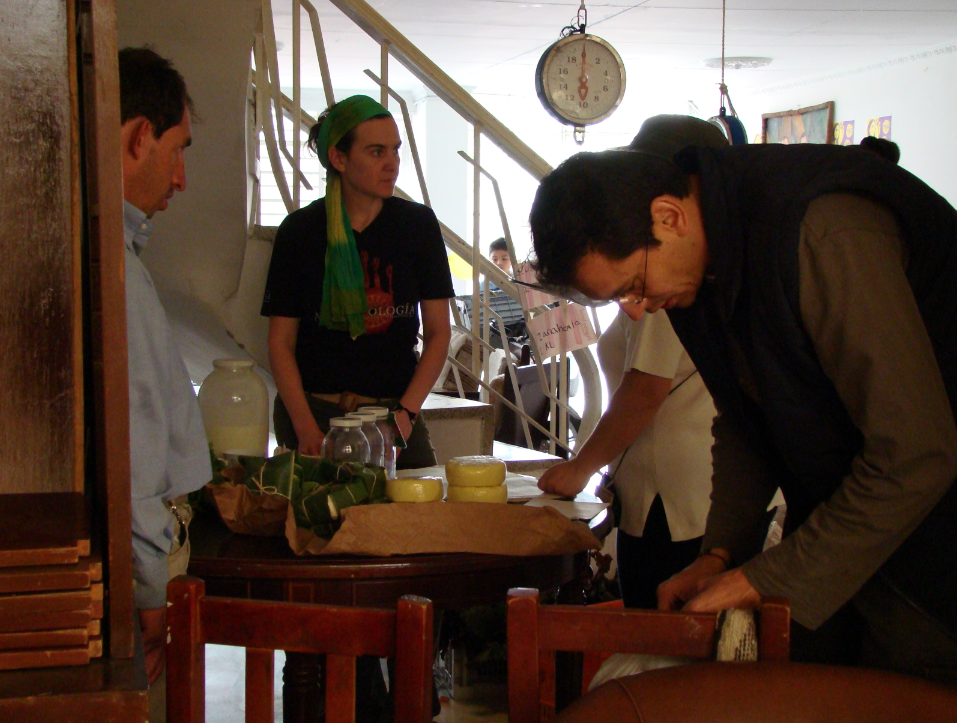
Half-monthly market at Bogotá: "Canasta Solidaria" ("Supportive Food Basket"). Every customer gets an equal portion of the harvest. It may include organic cheese, yogurt, bread, as well as vegetables like carrots, lettuce, herbs, peppers, etc. Almost fifty baskets are sold every market day.
Conscious Product, Conscious Consumer
Then we thought: how could we promote this previous concept so that it could inspire more people and turn it trend?
So we created labels to identify both products and groups of people that work under this new sort of community-supported agriculture, and make them visible as a community in their daily life.
This could be achieved by encouraging people with mottos like Se piensa diferente, se come diferente (Think different, eat different) and Conozco lo que como (I know what I eat), in the sense of being acquainted with producers and comprehending everything around their food consumption; and also marking their group’s products and printed material with a special logo: Producto Consciente (Conscious Product).
[issuu width=420 height=282 backgroundColor=%23222222 documentId=111210015157-b6263b3d8f7542da834975bff22d8ce1 name=manual_marca_de_identificaci_n username=cmndntnebula tag=estudio%206 unit=px id=61578065-5478-45ef-a7ce-c2641ccf3e1d v=2]
Aknowledgement Label
[issuu width=420 height=282 backgroundColor=%23222222 documentId=111210015446-e193190424924adea6cbe9636d607c3b name=manual_de_campa_a_consumidor_consciente username=cmndntnebula tag=estudio%206 unit=px id=48ef73e7-9608-399d-649f-1f53e0dc3507 v=2]
Campaign
[issuu width=420 height=282 backgroundColor=%23222222 documentId=111210020126-7a8317d2f73d45fab25b0c33b7364483 name=registro_de_proyecto_estudio_62 username=cmndntnebula tag=esttudio%206 unit=px id=345f1c89-cba9-612f-09ed-baa089db14de v=2]
Project dossier (diagrams used for illustrating each step of the project)
TEAM:
Estudio 6 students: Zulima Zafra, Sergio Molina and Miguel Aguirre. Collaborators at Colectivo Puentes (Sabina, Maritza and Adelmo).
Inspiration:
AGROSO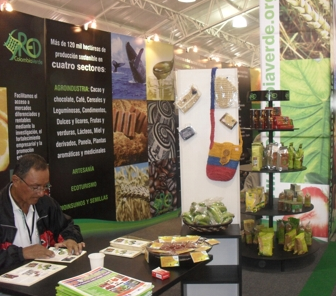 LIDARIA COLOMBIA
LIDARIA COLOMBIA
We work better together, or at least that’s what this organization in Colombia is showing. Lots of individuals and little groups that work in the food and tourism sector were having monetary problems, and little by little they were disappearing. Agrosolodaria noticed these problem and started an organization in witch all of these groups got together to help one another, with the development of different events and getting together to discuss the problems and what the solutions could be, these individuals and little organizations are rising and are getting over their previous monetary problems.
Agrosolidaria has establish themselves as an organization that provides good and healthy products, like a brand, being part of this organization is a recognition for quality and fair prices. Know days they have reach more than 50% of the regions of Colombia, and have created different brands of products that have placed themselves in the market. Also the accomplish to get to the most important get-together of regional food in Colombia, ”Agroexpo 2011”, this allowing them to show themselves and their potential to bigger organization, and for people to recognize their work and products. Here is the link for the home page in Spanish: http://www.agrosolidaria.org/
COLECTIVO PUENTES
COLECTIVO PUENTES (pfd inspiración)
This is the official blog in spanish: http://canastassolidarias.blogspot.com/
GRUPPI D’AQUISTO SOLIDALE
GAS is a solidarity-based group where a group of people gets together to buy common goods in large quantities, but they do so not only from the cheap price this represent, but to buy goods that don’t damage the environment or at least do their best to don’t do so.This group was born in the region of Firenze, Italy, in 1994 and was created primary to buy good, healthy and at a reasonable price food, but it has come to the point that they not only buy food together or do their research only in this sector, to find out witch products keep a fair price and give fair earning to the producers, but they have a book of information about the big companies in every sector, to know who helps the environment, how they do so, who the manage their employs and so on.
They also give a series of mini markets for those who don’t necessarily belong to the organization, and different tips to make good or at least inform decision when buying any anything.
GAS goes further as they focus on making responsible decision in every aspect of being a consumer, to know that food is not only of good quality but that the hole trail from the farmer that planted the seed until when it gets to your hands is a fair process, and sharing this information to create a responsible chain of consumers.
